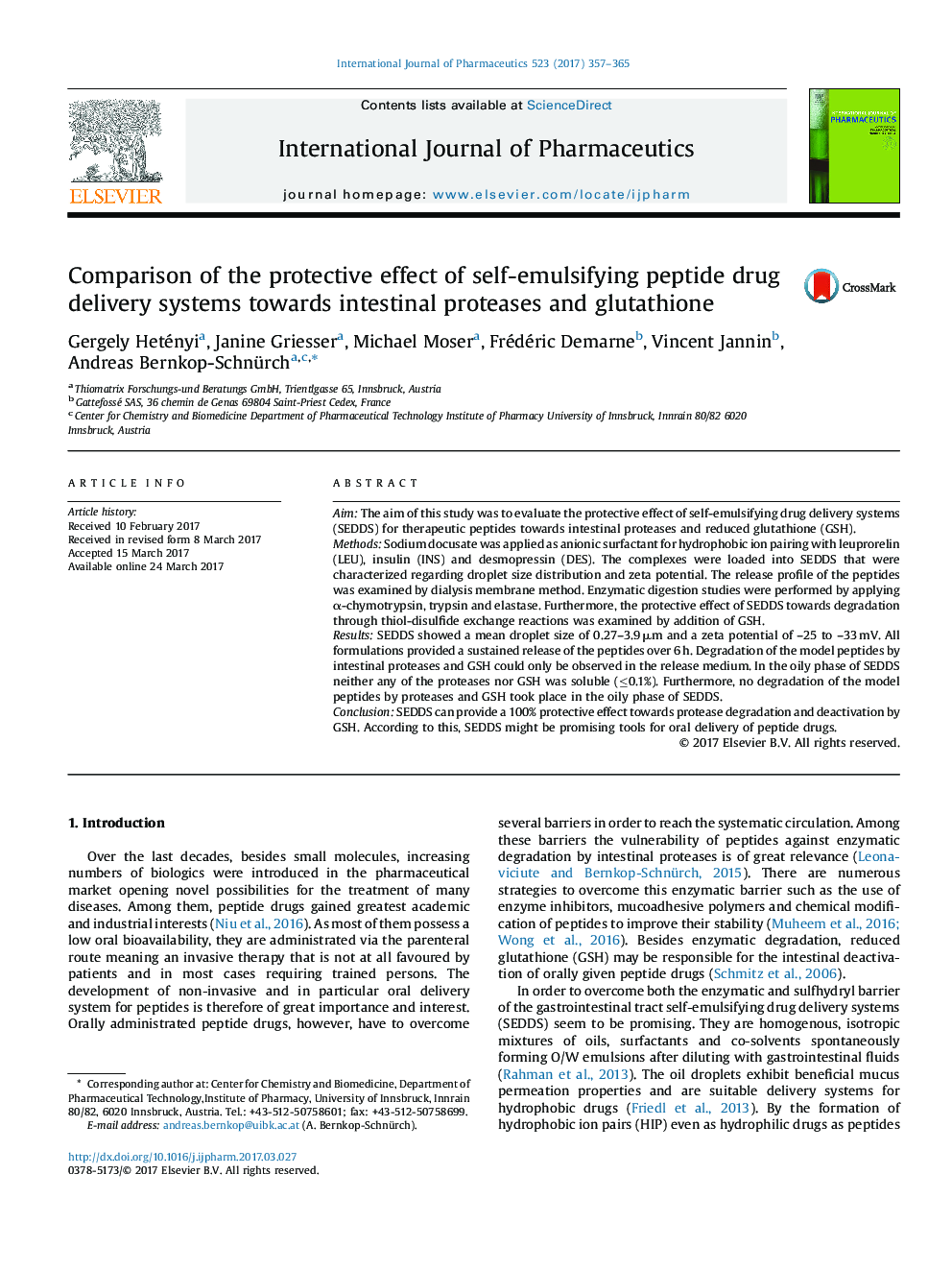| Article ID | Journal | Published Year | Pages | File Type |
|---|---|---|---|---|
| 5550543 | International Journal of Pharmaceutics | 2017 | 9 Pages |
â¢Independent from the type of peptide, all the SEDDS showed a prolonged release.â¢SEDDS can provide a 100% protective effect towards protease degradation and deactivation by reduced glutathione.â¢Hydrophilic enzymes and reduced glutathione were not soluble in the oily phase of the SEDDS.â¢Degradation is only taking place once the drug has left the protective environment of the drug carrier system.
AimThe aim of this study was to evaluate the protective effect of self-emulsifying drug delivery systems (SEDDS) for therapeutic peptides towards intestinal proteases and reduced glutathione (GSH).MethodsSodium docusate was applied as anionic surfactant for hydrophobic ion pairing with leuprorelin (LEU), insulin (INS) and desmopressin (DES). The complexes were loaded into SEDDS that were characterized regarding droplet size distribution and zeta potential. The release profile of the peptides was examined by dialysis membrane method. Enzymatic digestion studies were performed by applying α-chymotrypsin, trypsin and elastase. Furthermore, the protective effect of SEDDS towards degradation through thiol-disulfide exchange reactions was examined by addition of GSH.ResultsSEDDS showed a mean droplet size of 0.27-3.9 μm and a zeta potential of -25 to -33 mV. All formulations provided a sustained release of the peptides over 6 h. Degradation of the model peptides by intestinal proteases and GSH could only be observed in the release medium. In the oily phase of SEDDS neither any of the proteases nor GSH was soluble (â¤0.1%). Furthermore, no degradation of the model peptides by proteases and GSH took place in the oily phase of SEDDS.ConclusionSEDDS can provide a 100% protective effect towards protease degradation and deactivation by GSH. According to this, SEDDS might be promising tools for oral delivery of peptide drugs.
Graphical abstractDownload high-res image (221KB)Download full-size image
